To foster academic exchange and deepen graduate students’ understanding of cultural heritage digitization while bolstering cultural confidence in the new era, Xiaoguang Wang, Dean of our School and Director of the Ministry of Education’s Key Laboratory for Philosophy and Social Sciences in Cultural Heritage Intelligent Computing, was invited to deliver a keynote speech titled Revitalizing Cultural Heritage with Digital Intelligence: Inheriting and Disseminating Chinese Culture at the 15th Dean’s Forum of Wuhan University on the afternoon of March 4th. The event explored the empowering role of digital technologies in the preservation, inheritance, and innovation of cultural heritage. Attendees included Lin Wu, Deputy Secretary of Wuhan University Youth League Committee; Yaolin Jiang, Deputy Party Secretary of our School; staff from the Graduate Affairs Office and Undergraduate Students Affairs Office; and graduate students from both within and outside our School.
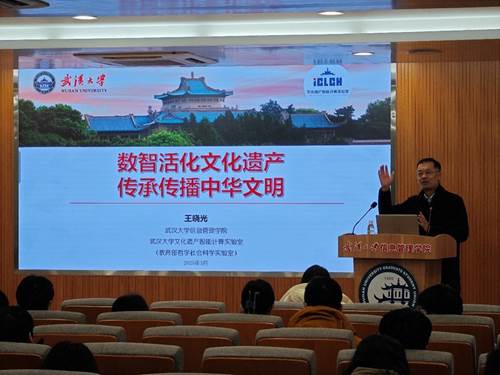
Xiaoguang Wang began his lecture by highlighting the “continuous inheritance, transformation, and regeneration of human culture throughout history,” emphasizing the significance of digitizing cultural heritage. Through vivid examples such as digital games and the metaverse, he demonstrated how historical cultures are being revitalized through innovative methods, integrating into contemporary life via visualization, auditory experiences, and interactive engagement. He further analyzed the application of the metaverse in cultural heritage preservation, underscoring its unique advantages in enhancing sensory immersion and interactivity. Breakthroughs in technologies like Augmented Reality (AR), laser projection, and holographic imaging were showcased to illustrate their role in reconstructing and disseminating cultural heritage.
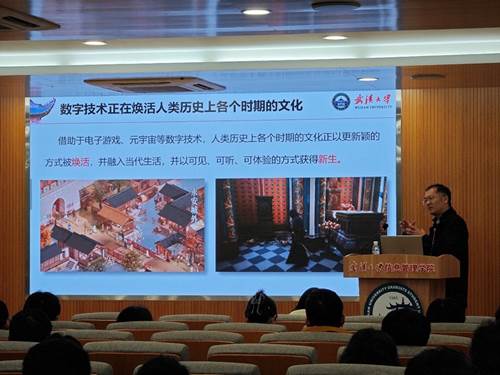
During the forum, Xiaoguang Wang introduced the five core research directions of the Cultural Heritage Intelligent Computing Laboratory including Smart Data Infrastructure for Cultural Heritage, AI-Driven Archival Organization of Ancient Texts, Semantic Understanding of Cultural Heritage Imagery, 3D Modeling and Simulation and GIS Systems for Cultural Heritage.
These directions exemplify the vast potential of technology in safeguarding cultural heritage. He also highlighted the China Bamboo and Silk Manuscripts Comprehensive Digital Platform, co-developed by Wuhan University’s Bamboo and Silk Manuscripts Research Center, which has significantly advanced the digital preservation of ancient scripts and provided robust support for the systematic inheritance of Chinese civilization.
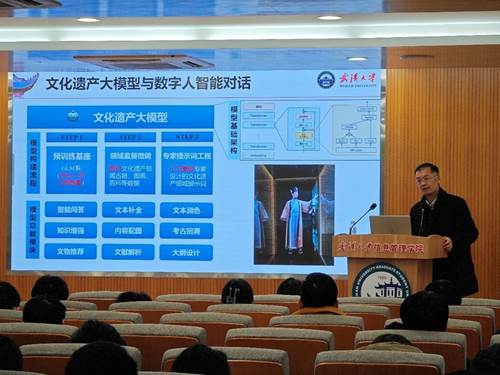
Xiaoguang Wang stressed that digital technologies not only open new pathways for cultural heritage preservation and research but also play a pivotal role in strengthening national cultural confidence. He called for greater participation from faculty and students in digitization efforts to collectively explore the integration of technology and culture.
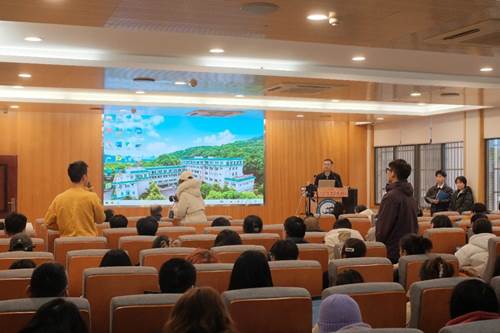
During the Q&A session, students actively raised questions on topics such as digital technology applications and heritage conservation strategies. Xiaoguang Wang provided detailed responses and professional recommendations based on his research expertise.
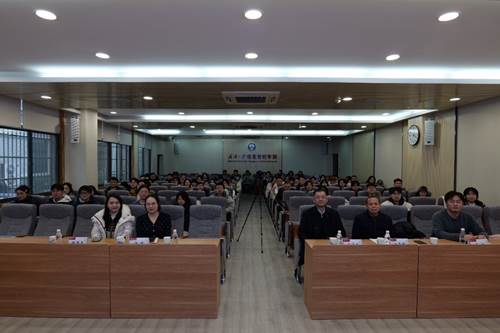
The forum concluded with a group photo of all participants, marking the successful completion of the 15th Dean’s Forum. Since its launch in April 2018, the Dean’s Forum has hosted 15 editions. Aligned with Wuhan University’s educational philosophy of “talent empowerment, student-centeredness, and academic excellence,” the forum invites leading scholars, primarily deans, to share academic experiences, promote scientific spirit, disseminate scholarly ideas, and inspire graduate students to broaden their intellectual horizons while embracing their mission in the new era.